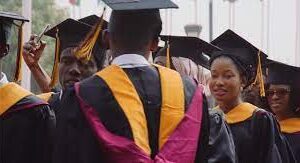Adewale
Just a week ago, I got a phone call from a colleague reminding me on the need to brainstorm on a pending assignment on what needed to be done in solving some of the challenges facing Africa as a continent. I remember that during a reflection on the “Race, Caste, Class and Gender Issues in Africa Today”, held in South Africa, many participants had reviewed the present circumstances in our continent with a view to making it a force to be reckoned with. Nothing much has been done after the series of robust discussion.
The discussion session was chaired by Dr. Emmanuel Nuesiri, a scholar, whose research interests cover global transformations, environmental governance and social justice. Dr. Nuesiri has been involved in the Responsive Forest Governance Initiative (RFGI) project, which focused on the relationship between democracy, political representation, forest governance and climate change mitigation while the speaker at the session was Dr. Dialo Diop, another brilliant and renowned Senegalese Biologist, a Pan-Africanist to the core. Dr. Diop had traced the history of racism in many societies, noting that racism had negative connotations and is associated with injustice.
He stressed that the issue of race was pivotal to our globalised world, which is highly classified in the lines of hierarchy of top-bottom, white-black and rich-poor in which the Europeans were unfairly ranked at the top, Africans were put below while the Asians were fixed in-between.
The three recommended books, which the resource person reflected upon while making his presentation were: De l’égalité des Races Humaines (Of the Equality of Human Races: A Positivist Anthropology) by Anterior Firmin; The Racial Contract by Charles W. Mills; and The New Jim Crow: Mass Incarceration in the Age of Colorblindness by Michelle Alexander. In the first book, Firmin delves into the two bases of existing theories on black inferiority in an effort to critique Gobineau’s De l’Inégalité des Races Humaines (aka Of the Inequality of Human Races). On one hand, Firmin challenges the idea of brain size or cephalic index as a yardstick for human intelligence and on the other; he re-affirms the presence of African Blacks in the Pharaonic Egypt. He equally x-rayed the significance of the Haitian Revolution of 1804 and the ensuing achievements of Haitians.
He disclosed that the book, De l’égalité des Races Humaines (Of the Equality of Human Races: A Positivist Anthropology) by Firmin, was ‘buried’ from the 20th Century African scholars so as to limit their knowledge. He added that racism was borne-out of the social perception by the people and that there was no rational justification to suggest that Africans were inferior to other races. Dr. Diop noted that this assertion of inferiority was unfounded because landmark achievements could be traced to Africa and Africans. He debunked the insinuation that African feats were never documented because the first mode of writing called hieroglyphics could be traced to the ingenuity of the Libyans and Egyptians.
While acknowledging and identifying other forms of cultural and gender discrimination, Dr. Diop said that the inequality among human beings could be seen manifesting in the prejudice of the minority against the majority as well as between male and female persons, noting that it is a reality that people have to deal with each other on the basis of their phenotype. Matriarchy, according to him, was a social characteristic of the African society even though females in Africa were mothers in their house-holds.
He expressed his displeasure over the fact that human beings discriminate against each other without any logical reasons. Dr. Diop observed that gender problems in a typical African society had caused many injustices while the caste system was still prevalent in West Africa.
Drawing strengths from the inspiring messages central to the recommended books, the Pan-Africanist called for the need to fight for a new social order that would bring about equality and better life for all using the non-discriminatory African model as against the European model that is highly discriminatory and naturally geared towards profit-making. He pointed out that conflict is classless and could happen to any society. He pleaded that all men would be accorded equal access to basic needs of life and be allowed to have aspirations that would guarantee them peace, unity and freedom. The resource person also called for a common language for Africans so as to promote better integration and have a common sense of purpose.
Most of the laureates were of the opinion that in this modern era, issues such as race, caste and class may not have much relevance and that rather, more emphasis should be placed on how to minimise the negative effects of social problems like ethnicity, language and religion. At the end, participants aligned with Dr. Diop’s line of thoughts and expressed the optimism that Africa could truly be united, develop and attain greatness, provided there is a common vision driven by Africans themselves, patriotic leadership and by adopting home-grown Afro-centric development models. This blueprint is yet to materialise after this discourse. Indeed, a very serious and pending assignment!



